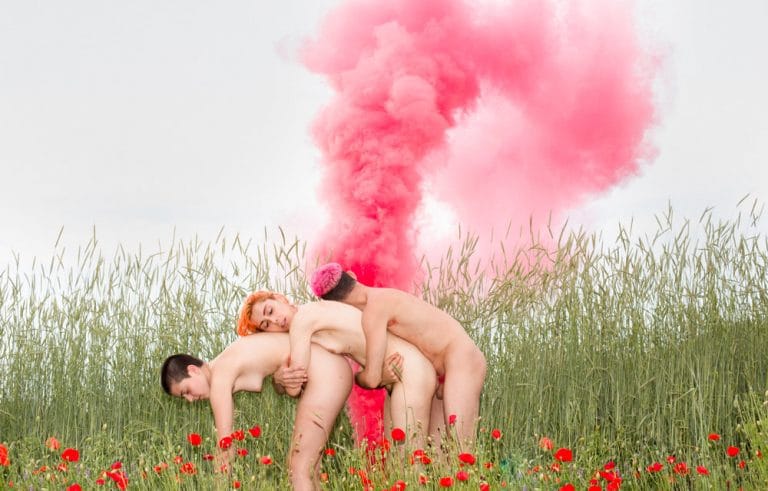The 5 break-ups and make-ups we’ve already been through in 2020
With V-Day just around the corner, it’s hard not to get caught up in musings about love, relationships (or the lack thereof) and heartbreaks. And while each of us can account for their own love-related trials and tribulations, we also run a pretty impressive record of global-scale drama in that respect. 2020 is still in its infancy, and yet several monumental events have shattered the world, tearing up old relationships or, in other cases, sparking promising love stories.
So what were the major break-ups and make-ups of 2020 so far?
1. The UK and Europe bid farewell
After more than three years of a nasty divorce battle, and futile hopes for reconciliation, the UK had officially left the European Union on January 31, 2020. Brexit marked the termination of a union that began back in 1973, when the UK joined what was then called the European Economic Community (EEC).
But as is the case in many divorce proceedings, the actual separation is ensued by a challenging process of determining what the relationship between the parties will look like in the future. In the case of the UK and EU, some of the major issues that will need to be hashed out are trade regulations and tariffs on goods travelling between the kingdom and the bloc. Other than trade, the quarrelling parties will have to determine what the rights and privileges of EU citizens in the UK will be (and vice versa); law enforcement cooperation, data sharing, and security; access to fishing waters and aviation standards; and whether or not a customs border will be erected between Northern Ireland and Ireland (a particularly flammable point of contention).
An 11-month transition period in which the UK will remain in the single market despite not being an EU member is due to end in December 2020, although many predict that British and EU citizens could remain in limbo for several years.
2. The toxic relationship between Trump and Pelosi explodes
Last week saw a massive blowout between the president of the United States and House Speaker Nancy Pelosi (D-CA). On the foothills of a bitter battle over Trump’s impeachment, and one day before he was due to be acquitted by the Republican-controlled senate, the president delivered a most divisive State of the Union speech in Congress. After handing Pelosi a copy of his speech, Trump refused to shake the house speaker’s hand. In a dramatic retort, the speaker tore up her copy of the speech to pieces when the president finished his address.
The spat between the two continued to escalate following the State of the Union, with the president calling the Speaker “a horrible woman” and Pelosi referring to his speech as “appaling”. But while the state of affairs between the two leaders seems as dire as it could get, many in DC predict that both sides will put their weapons down and come to the negotiation table around major political issues once the mist of this current drama dissipates and the next scandal preoccupies the capital.
3. Meghan and Harry ditch the royal family
Last month, Prince Harry and Meghan Markle, the Duke and Duchess of Sussex, bluntly announced on Instagram that they will be stepping down as senior members of the royal family and pursue financial independence. Naturally, the British monarchy was blindsided by the couple’s decision to retire from royal life, and was particularly rocked by the fact they made the announcement on social media without alerting the Queen or Prince William prior to publishing their post.
The couple’s decision to leave the royal nest stemmed from months of abuse and scrutiny by British tabloids, which Markle claims took a serious hit on her mental health. Although their departure is unlikely to result in major structural changes in the monarchy, it might nonetheless keep issues of mental health and the financial dependency of royals on the British taxpayers at the heart of national debates for a while.
4. Mitt Romney and God: homies once again
Senator Mitt Romney from Utah, a devout Mormon, was the only Republican Senator who voted to convict President Trump of high crimes and misdemeanors, and cited his oath to God as the reason. “I am profoundly religious. My faith is at the heart of who I am. I take an oath before God as enormously consequential,” the Utah Senator said in a speech before the Senate, choking back tears.
Although Romney has, unsurprisingly, been vilified by Trump and his army of devotees in government, the media, and the public, he seems to find support among many in his home state who praise him for doing what he felt was right. Perhaps most importantly, Romney seemed to be patching things up with God—after having voted with Trump “80 per cent of the time,” and throwing his support behind some of the most hawkish immigration policies in recent history.
5. The Oscars embrace international films
After 92 years of largely snubbing non-US films, the Academy of Motion Picture Arts and Sciences awarded the Best Picture prize to the South Korean film Parasite last Sunday. The comedy-thriller, directed by Bong Joon Ho, was the first film to win the lucrative award that is not in English. “We never write to represent our countries,” said Boon as he accepted the award. Yet, this move by the Academy could be the beginning of a flourishing relationship between the American film industry and, well… the rest of the world; one in which people from across the globe will be encouraged to tell their own stories, as opposed to having Hollywood belt its Americanised version of these stories on their behalf.
Here’s hoping that, moving forward, 2020 will know more make-ups and fewer break-ups.





